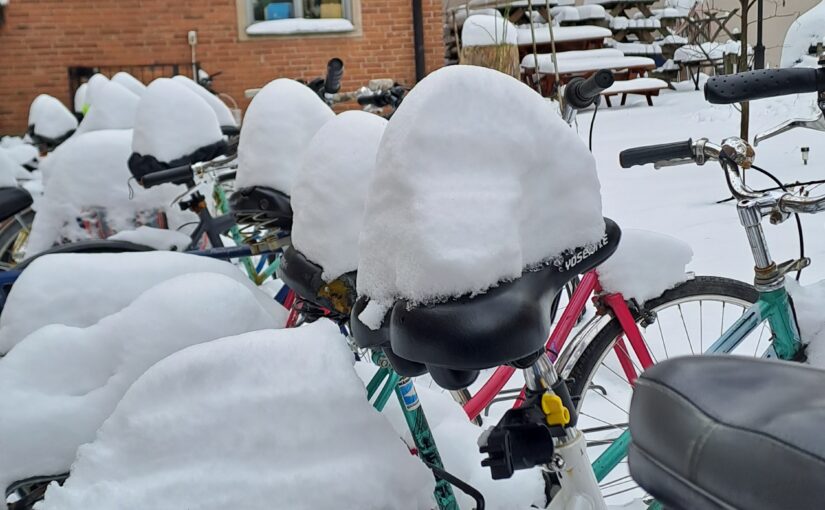Field of study in Wageningen: Biology
Study period exchange: 16/01/2023 – 04/06/2023
Country (exchange): Sweden
City (exchange): Uppsala
University (exchange): Uppsala University
Faculty (exchange): Biology
2. Motivation for exchange
Why did you choose to go on study exchange?
Other universities in other countries can have a different perspective on subjects. And as an ecologist it is interesting to experience different species, climates and ecosystems. And also, studying abroad is an ultimate challenge to your skills of living independently and tests your social skills. And I am a very linguistic person and I love to learn new languages. Learning a new language is done best in the country where it is spoken!
What is the reason you chose for this country/university?
A book by Arjen Lubach made me curious about Uppsala university and Sweden in general. I also visited Stockholm once with my family and I loved how much more you appreciated the sun there than in the Netherlands, I learned a little bit about the Swedish language and became a fan. And I really loved the yellow houses in Stockholm. Later I heard that Uppsala was the city where the Swedish royal family studies and that Carl Linnaeus is from Uppsala. More and more reasons to do my Erasmus in Sweden. Italy has also been on my mind, but then I looked at the websites from several Italian universities – I would rather have a university with well-functioning modern technology. And Uppsala university turned out to have the nicest-looking courses to choose from, compared to other Nordic universities and Italian universities. So Uppsala Universitet was my first choice!
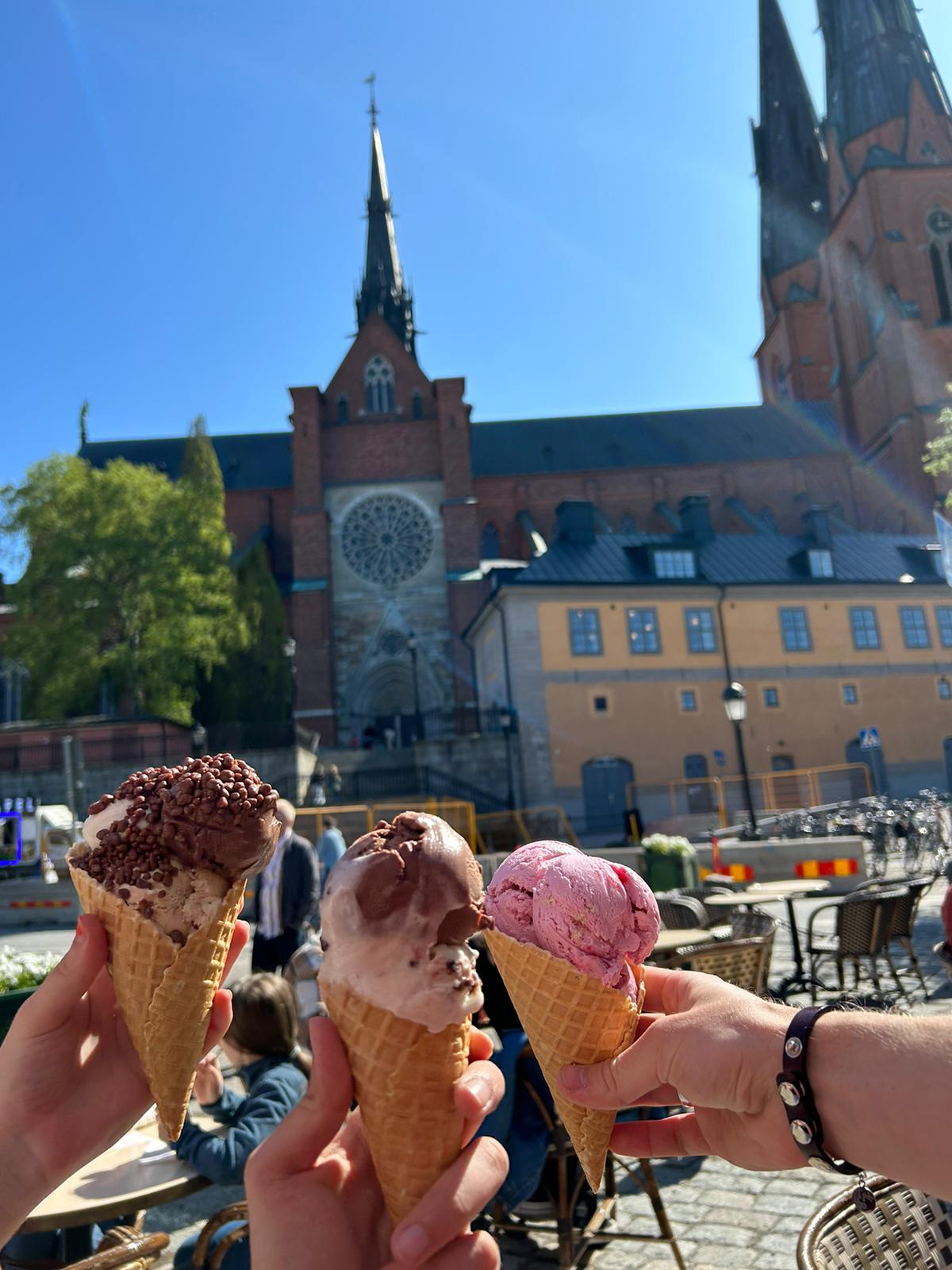
3. Accessibility to reach destination
Do you have any tips to reach your exchange destination?
It might be worthwhile to take an interrail pass when you travel by train, because you have more room for a missed train in your schedule (German trains tend to be late sometimes and German train stations can be chaotic) and it does not differ much in price with regular train tickets. There is currently a nice night train from Hamburg to Stockholm, which I managed to take. Travelling by train is very nice, because you can bring more stuff with you than by plane. Another nice thing about travelling to Uppsala by train is that you might pass by Hamburg (central) station, where you can get an excellent hamburger.
4. University and studying
Could you provide some general information about the followed courses?
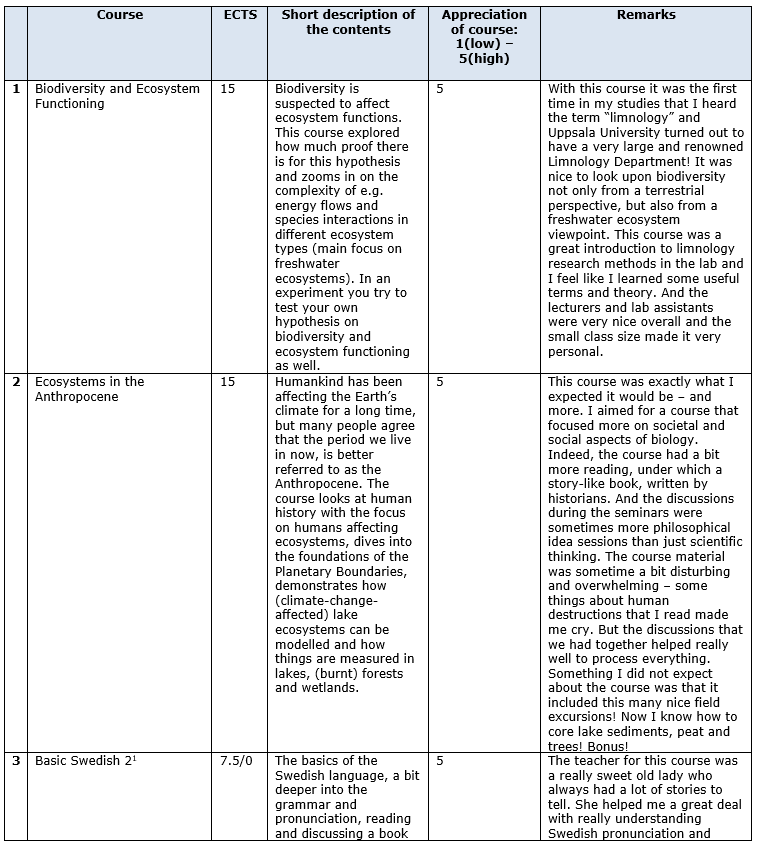
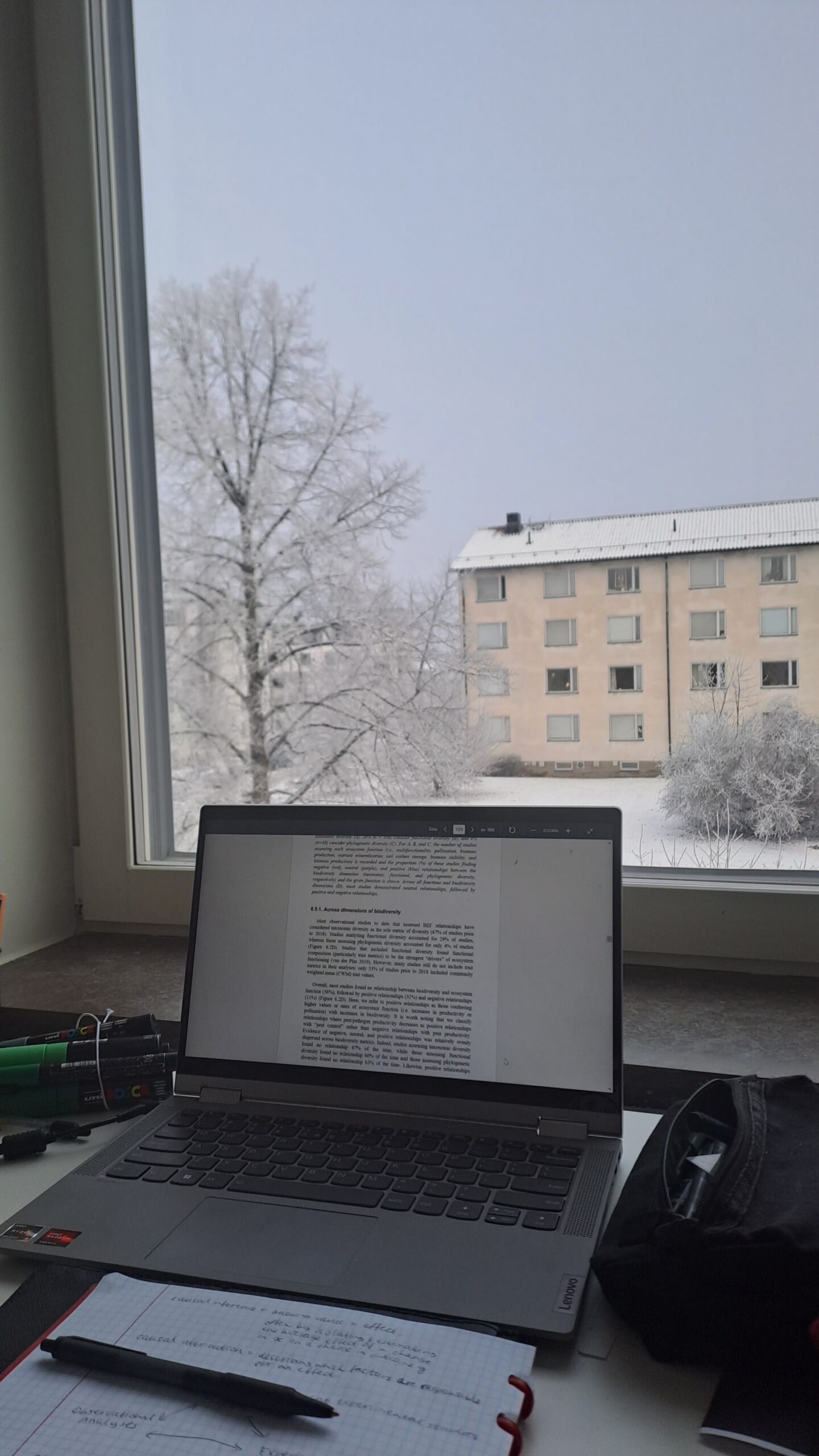
How is the study formalized?
Uppsala university has a system where they have relatively few courses in a semester and you usually do not follow more than one large course at once. In the Spring semester I followed two advanced-level biology courses; one at a time. Both courses mainly started with a theoretical part with a lot of lectures, preparatory reading and seminars, in which we discussed what we had read. For the second course that I took, there was relatively more reading to do, so sometimes we got a class-free day in the week to do our reading. Overall, I got enough scheduled time for reading – I did not feel very rushed. The first course ended the theoretical part with an examination, which was done in a large computer examination hall. The second course did not have an exam and you were solely graded on your participation and quality of your assignments and presentations, which followed mostly in the second part of the course. In the second half, seminars were sometimes still scheduled, but mostly the weeks consisted of individual assignments or group work, such as writing assignments or preparing presentations. But there were also lab experiments for the first course and two field excursions for the second course. We went to a research facility at Lake Erken to get a tour and practice sediment sampling. And we went on a two-day fieldwork excursion to a burnt forest/peatland area.
What is the culture of the university?
The classes of students were only very small – between ten and fifteen students – so you got to know everyone very well. For one course, we even went out one time with the whole class as an extra bonding activity. It differed per lecturer how approachable they were – especially lecturers that only had one or two lectures were a bit more distant from the class. But the regular lecturers became good friends with the class and responded quickly to emails, or you could visit them in their office when there was group work going on. The culture in Sweden is very comparable to WUR. Everything is very informal and you feel like you can ask questions at any time.
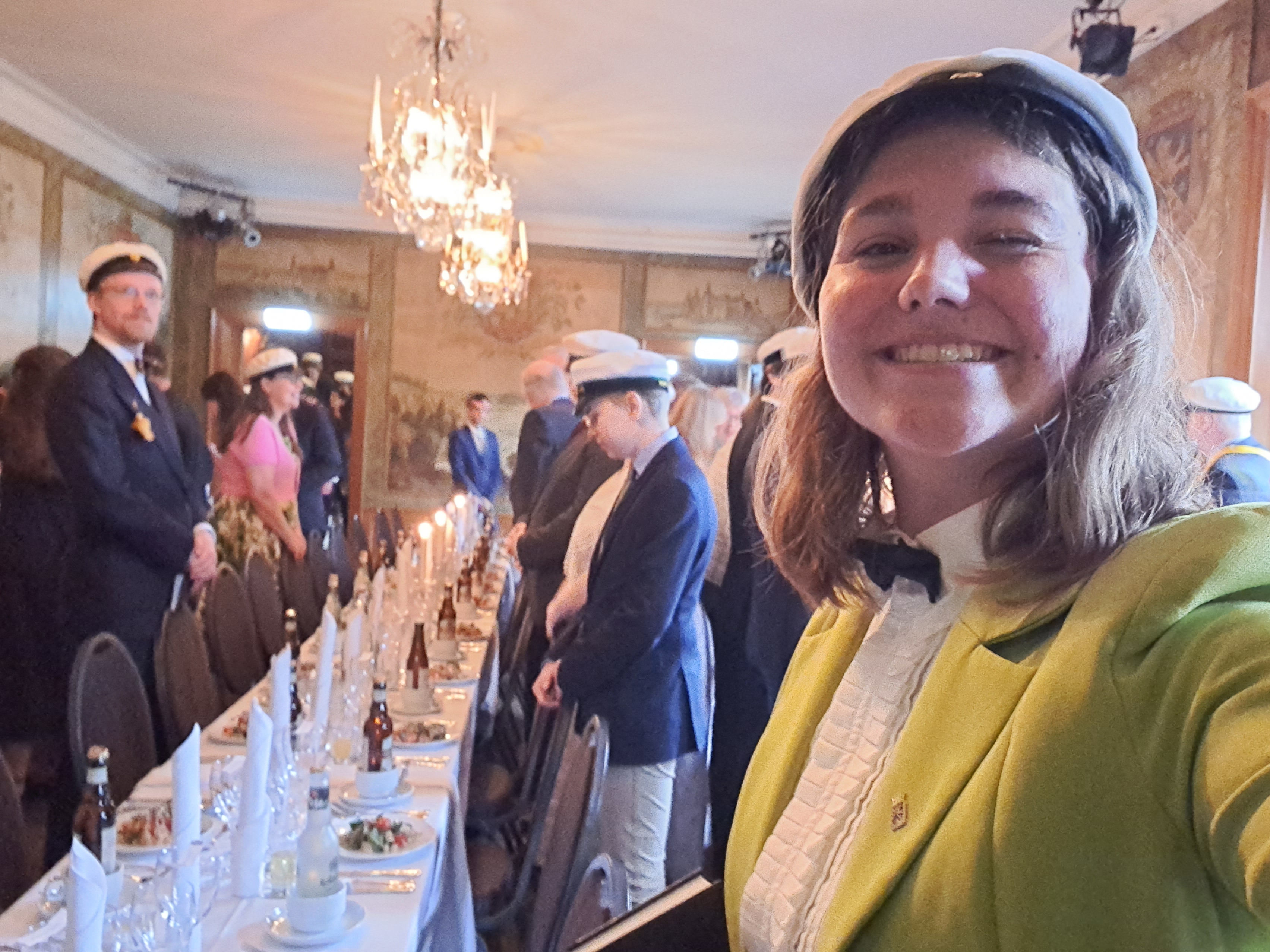
What does the university offer the student additionally?
On the biology campus, there were several little museums (natural history, palaeontology) and very close-by was the tropical greenhouse from the botanical garden, which all gave free admittance to students. In the university buildings, there were also some nice public pianos (from which I made good use) and large microwave rooms (15+ microwaves) for in the breaks.
5. Housing-travelling-living
What are the possibilities for housing?
As an exchange student you get housing via the Housing Office in one of the large student complexes that are mostly reserved for international students. If you wanted, you could state a preference for a certain housing area in Uppsala. Myself, I did not really mind where I was placed – as long as I got a room. But I was very lucky to get placed in a calm complex with rooms that have their own bathroom and a shared kitchen with four other students. And the rent was very similar to the rent in Wageningen (~€450 per month). There were some housing complexes that were cheaper, but I also heard stories of how messy and noisy it was there and how heating systems were sometimes lacking. There was also a more expensive (~€700 per month), private-room complex, which came across as a hotel.
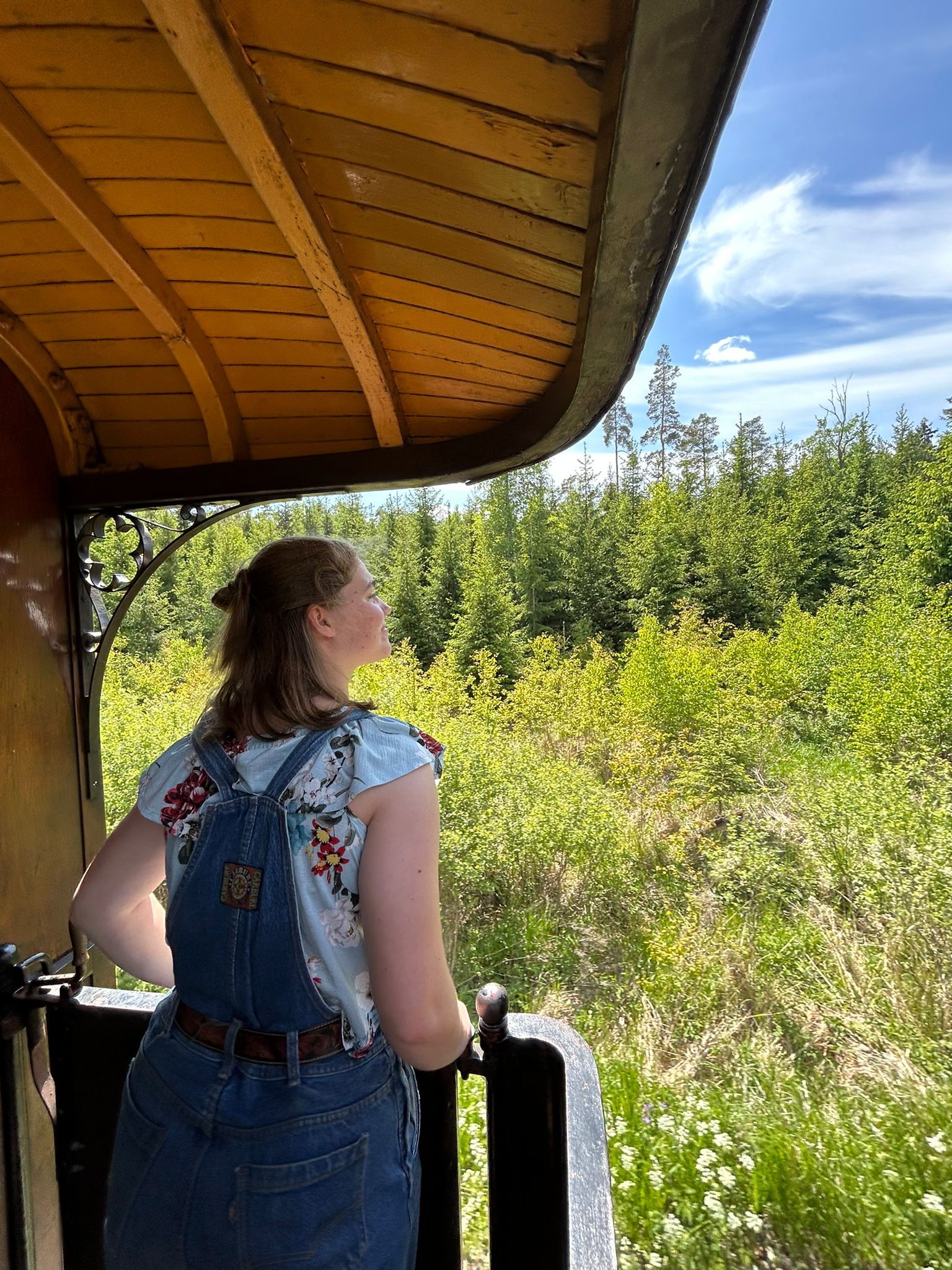
What is the culture of the country like?
The Swedes are very into “everyone just minds their own business”. People would not easily approach you on the street to help you out, for example when you are looking at Google Maps on your phone. You really actively have to approach a Swede yourself if you want to talk or want help. This was also the case with one of my Swedish corridor mates. I tried very hard to start conversations every time we met in the kitchen and in the end he was more comfortable and quite talkative.
Could you give a general price indication of the place of residence compared to living in Wageningen?
Renting a room is more or less similar to Wageningen. A bit more expensive, maybe €50-100 more. My Wageningen room was €400 per month and my Uppsala rent was €450, but it was also more modern and with a personal toilet.
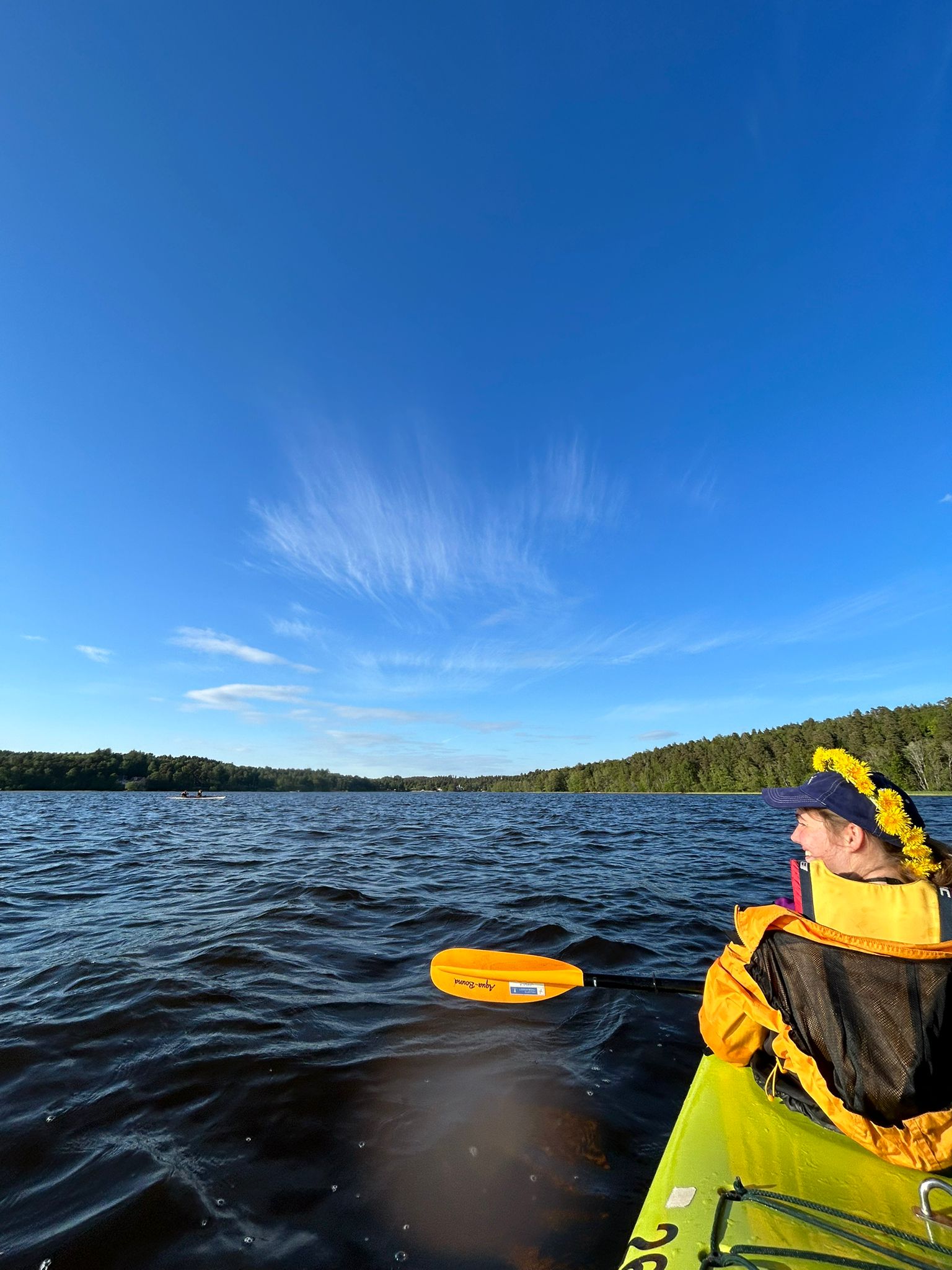
Could you give some information about public transport infrastructure?
Almost everyone cycles to campus, like in Wageningen. That is why I felt quite at home in Uppsala. Next to the bike, I also saw a lot of students and tourists on electric steps that could be found everywhere. I hardly ever took the bus, because you have to buy tickets via the company’s app and it was hard to pay with a Dutch debit card (Swedish bank account or credit card required). There were ticket machines at the central station, where you could also buy day, week or month tickets with other payment methods, but it was too much trouble for me and also quite expensive (I do not remember how much, but for an idea, I once took a 30 minute bus ride (and return) and it cost €9). Uppsala has very nice train connections – in 40 minutes, you are in Stockholm, and a night train to Lapland also stops in Uppsala.
6. Free time
What are must-sees in the area?
In Uppsala itself, I would recommend visiting the botanical gardens – all is in theme of Carl Linnaeus. He is buried in the Domkyrkan, which is also worth a look inside. And be in the centre of Uppsala during Valborg, on the 30th of April! There is a very fun boat race on the river and a beautiful hat-throwing ceremony in front of the university library. A thirty minute bike (or bus)-ride from the centre away is Gamla Uppsala, with its distinct grave hills from Viking times. There is also a cute museum on the history of the site. In the area, you have Stockholm of course, 40-50 minutes away by train. And you have several nice islands, like Gotland and Åland where you can go by train and ferry (and on the ferry to Åland, you can get cheap alcohol). And: Go to Lapland in winter! You can go there by night train on a Friday and be back on Sunday night, so you can combine it with studies. There is a nice organisation that provides nice activities in a back-to-basics village near Kiruna, where you can go ice fishing, cross-country skiing, chopping your own firewood, take a Swedish sauna and see the Northern lights (when you are lucky, like me).
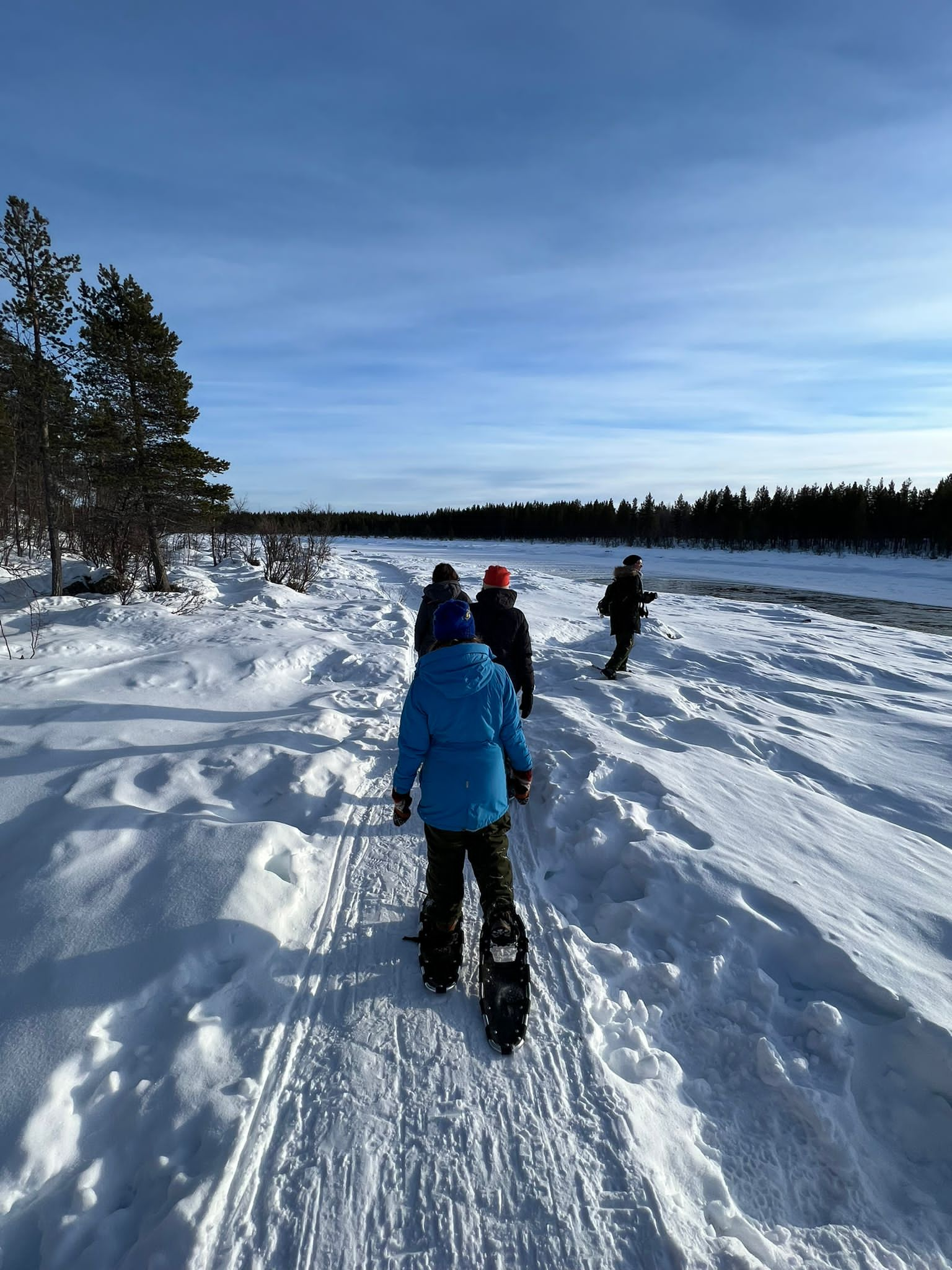
What does not appear in the travel guide, but is worth a visit?
Also a thing that not many people know is the little steam train that departs from a side track behind the central station.
Do you have general tips and tricks about leisure time?
Join one of the student nations and you can go out cheaply at one of Uppsala’s thirteen student nations (I joined Västgöta Nation, because they have a good soup lunch and their building is very aesthetic). Student nations also have a lot of nice traditions, such as the Spring Ball in May and fancy dinners with for example choir performances. Note that student pubs and clubs always start very early – around 18:00, because they are required to close around 1-2am. Other restaurants and bars are quite expensive – especially alcohol (thankfully I do not drink). I recommend to cook your food yourself instead of eating out, and when you want alcohol, to go to the nations. A great thing in Uppsala is Fritidsbanken (two buildings in the city), where you can borrow outdoor gear, like tents, sleeping bags and ice skates.
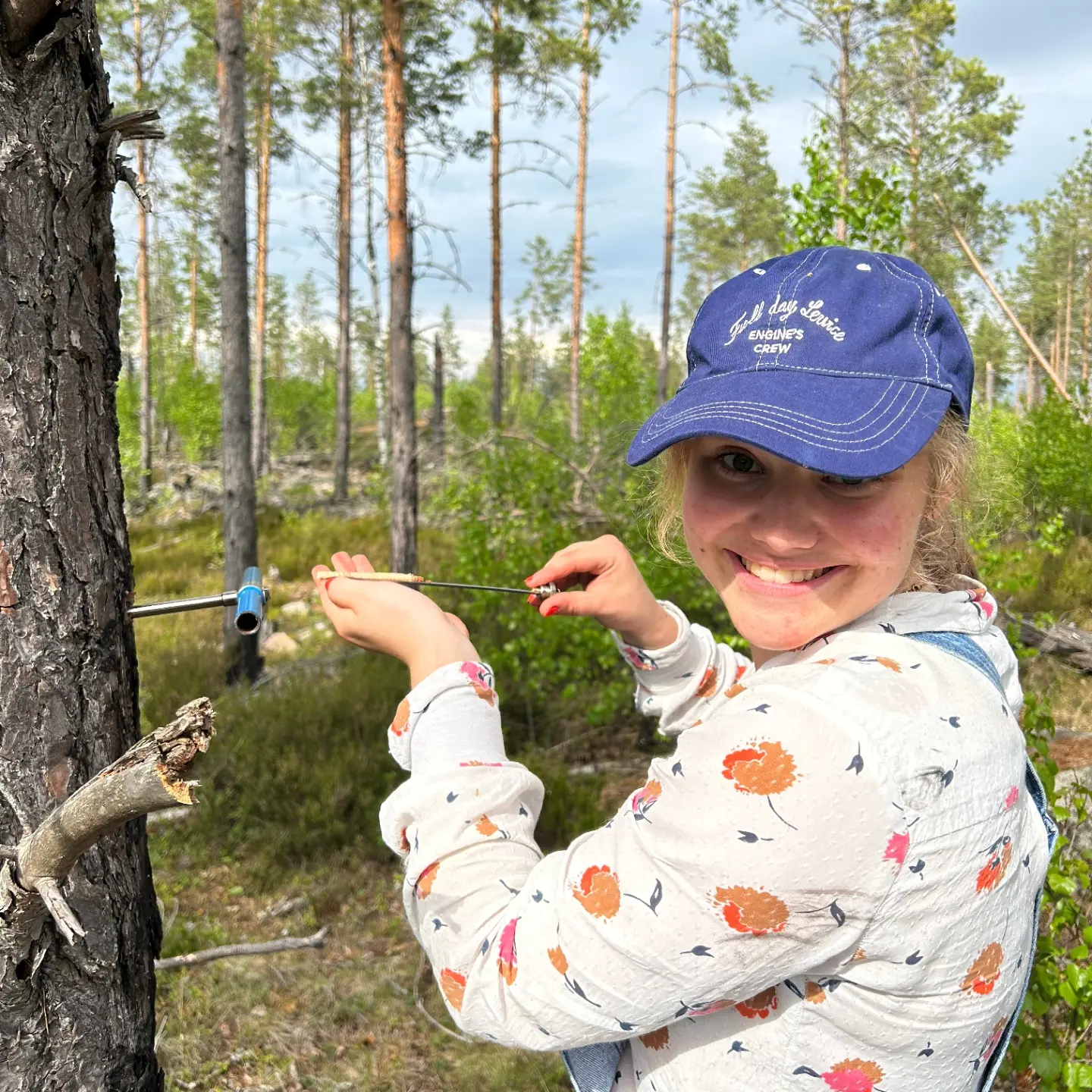
7. Challenges & best moment abroad
What was a challenge you have experienced?
One of my goals was to go to Lapland, but there was no ESN in Uppsala that arranged trips. And ESN in other cities also did not organise trips that would fit in my class schedule. The season to go to Lapland for the northern lights was only until March and I did not have any friends in the beginning to travel with. So I almost gave up my Lapland plan – until I met some really nice people and we heard from other students that there was a fun travel organization that organized nice weekend trips to Kiruna in Lapland. Together we figured something out!
What was your best memory abroad?
There were so many amazing experiences, especially with the new friend group that I made, but one of the best memories I have of my semester in Sweden was the second field trip from my last course. And after a long-day’s field work, we arrived in our accommodation, which was the most luxurious, picturesque accommodation I have ever been for fieldwork. This was because there was almost no other choice in this remote area. But with our 11-people class we stayed in a group of little Swedish huts and houses, surrounded by a beautifully tended garden with loads of good-smelling lilacs and a stunning view over Oil Lake and a little castle. And with the whole group we went for a swim there – that was my best memory. Teachers and students, all enjoying that precious moment in the surprisingly warm water in such an amazing setting. Marvellous.
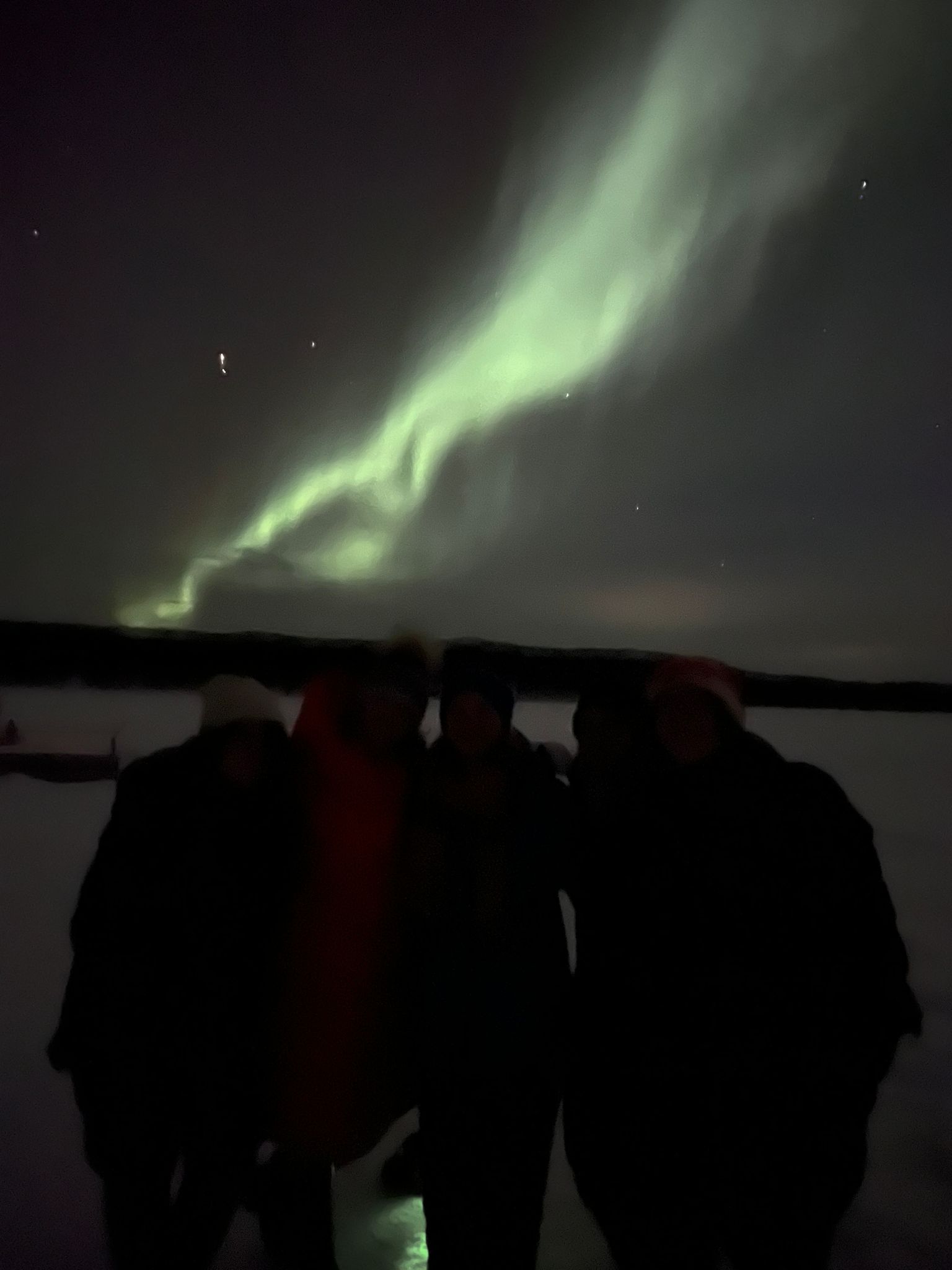
8. Contact Details
Would you like to ask Julia more questions about her exchange?
Send her a mail: juliavanholst@outlook.com

